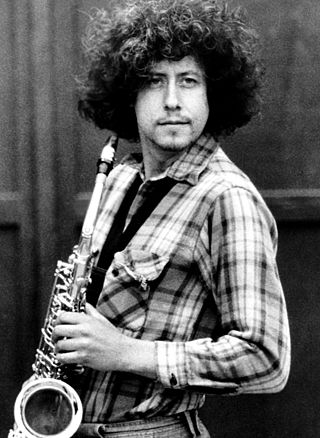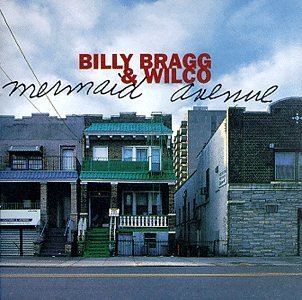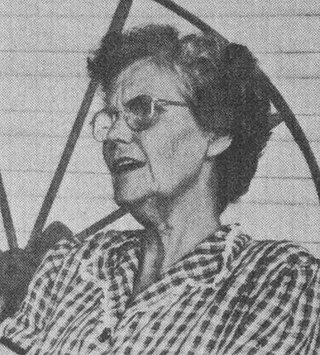Related Research Articles

Arlo Davy Guthrie is an American folk singer-songwriter. He is known for singing songs of protest against social injustice, and storytelling while performing songs, following the tradition of his father, Woody Guthrie. Guthrie's best-known work is his debut piece, "Alice's Restaurant Massacree", a satirical talking blues song about 18 minutes in length that has since become a Thanksgiving anthem. His only top-40 hit was a cover of Steve Goodman's "City of New Orleans". His song "Massachusetts" was named the official folk song of the state, in which he has lived most of his adult life. Guthrie has also made several acting appearances. He is the father of four children, who have also had careers as musicians.

Woodrow Wilson Guthrie was an American singer-songwriter and composer who was one of the most significant figures in American folk music. His work focused on themes of American socialism and anti-fascism. He inspired several generations both politically and musically with songs such as "This Land Is Your Land".

"This Land Is Your Land" is a song by American folk singer Woody Guthrie. It is one of the United States' most famous folk songs. Its lyrics were written in 1940 in critical response to Irving Berlin's "God Bless America". Its melody is based on a Carter Family tune called "When the World's on Fire". When Guthrie was tired of hearing Kate Smith sing "God Bless America" on the radio in the late 1930s, he sarcastically called his song "God Blessed America for Me" before renaming it "This Land Is Your Land".

Mermaid Avenue is a 1998 album of previously unheard lyrics written by American folk singer Woody Guthrie, put to music written and performed by British singer Billy Bragg and the American band Wilco. The project was the first of several such projects organized by Guthrie's daughter, Nora Guthrie, original director of the Woody Guthrie Foundation and archives. Mermaid Avenue was released on the Elektra Records label on June 23, 1998. A second volume of recordings, Mermaid Avenue Vol. II, followed in 2000 and both were collected in a box set alongside volume three in 2012 as Mermaid Avenue: The Complete Sessions. The projects are named after the song "Mermaid's Avenue", written by Guthrie. This was also the name of the street in Coney Island, New York, on which Guthrie lived. According to American Songwriter Magazine, "The Mermaid Avenue project is essential for showing that Woody Guthrie could illuminate what was going on inside of him as well as he could detail the plight of his fellow man". It was voted number 939 in Colin Larkin's All Time Top 1000 Albums 3rd Edition (2000).

The Assassination of Jesse James by the Coward Robert Ford is a 2007 American epic revisionist Western film written and directed by Andrew Dominik. Based on Ron Hansen's 1983 novel of the same name, the film dramatizes the relationship between Jesse James and Robert Ford, focusing on the events that lead up to the titular killing. It stars Brad Pitt as James and Casey Affleck as Ford, with Sam Shepard, Mary-Louise Parker, Paul Schneider, Jeremy Renner, Zooey Deschanel, and Sam Rockwell in supporting roles.

Robert Newton Ford was an American outlaw who killed fellow outlaw Jesse James on April 3, 1882. He and his brother Charley, both members of the James–Younger Gang under James's leadership, went on to perform paid re-enactments of the killing at publicity events. Ford would spend his later years operating multiple saloons and dance halls in the West.
Jesse James became a hero in folklore and dime novels before he was killed in 1882. A manifestation of this was the emergence of a wide body of music that celebrates or alludes to Jesse James.

Dust Bowl Ballads is an album by American folk singer Woody Guthrie. It was released by Victor Records, in 1940. All the songs on the album deal with the Dust Bowl and its effects on the country and its people. It is considered to be one of the first concept albums. It was Guthrie's first commercial recording and the most successful album of his career.

"Oklahoma Hills" is a song written by Woody Guthrie. In 2001 it was named the official Folk Song of the state of Oklahoma.
Man in the Sand is a 1999 documentary that functions as both a biography of American folk singer-songwriter Woody Guthrie and a chronicle of the creation of the Billy Bragg & Wilco Mermaid Avenue albums, which feature songs consisting of previously-unheard Woody Guthrie lyrics set to newly-created music.

Almeda Riddle was an American folk singer. Born and raised in Cleburne County, Arkansas, she learned music from her father, a fiddler and a teacher of shape note singing. She collected and sang traditional ballads throughout her life, usually unaccompanied. Introduced to a wider public by folklorist John Quincy Wolf and musicologist Alan Lomax, Riddle recorded extensively, and claimed to be able to perform over 500 songs.
"Song to Woody" was written by American singer-songwriter Bob Dylan and released on his debut album, Bob Dylan, in 1962. The song conveys Dylan's appreciation of American folk legend Woody Guthrie. The song is one of two original compositions featured on Dylan's debut album. Dylan also rehearsed the song in a country arrangement during sessions for Self Portrait on May 1, 1970, as heard on the 2021 compilation album 1970.

Nora Lee Guthrie is the daughter of American folk musician and singer-songwriter Woody Guthrie and his second wife Marjorie Mazia Guthrie, sister of singer-songwriter Arlo Guthrie, and granddaughter of renowned Yiddish poet Aliza Greenblatt. Nora Guthrie is president of The Woody Guthrie Foundation, president of Woody Guthrie Publications and founder of the Woody Guthrie Archive, and lives in Mt. Kisco, New York.

The Assassination of Jesse James by the Coward Robert Ford by Nick Cave and Warren Ellis is the official soundtrack album to the movie of the same name. Cave and Ellis composed all the music. According to the CD liner notes, Cave played piano, celesta and other keyboards, while Ellis played violin, viola, guitar and keyboards. Furthermore, some songs featured percussion, a small string ensemble and other instruments.

The Assassination of Jesse James by the Coward Robert Ford is a 1983 historical novel by American writer Ron Hansen. It explores the life and times of Jesse James and his gang, and his death at the hands of Robert Ford.
"Jesus Christ" is a song written in 1940 by Woody Guthrie. The song tells in eight verses what Jesus preached in his time, especially about the rich and the poor, and that he was killed by different groups who rejected his preaching. The ninth verse says that Jesus would have been killed by modern capitalist society just as he was in his own time. The song was partially sung and played on the piano by the Guthrie character in the 1976 biographical film Bound For Glory, set to the same tune as the folk ballad "Jesse James".
"Cumberland Gap" is an Appalachian folk song that likely dates to the latter half of the 19th century and was first recorded in 1924. The song is typically played on banjo or fiddle, and well-known versions of the song include instrumental versions as well as versions with lyrics. A version of the song appeared in the 1934 book, American Ballads and Folk Songs, by folk song collector John Lomax. Woody Guthrie recorded a version of the song at his Folkways sessions in the mid-1940s, and the song saw a resurgence in popularity with the rise of bluegrass and the American folk music revival in the 1950s. In 1957, the British musician Lonnie Donegan had a No. 1 UK hit with a skiffle version of "Cumberland Gap".

New Multitudes is a Woody Guthrie tribute album performed by Jay Farrar, Will Johnson, Anders Parker, and Jim James to commemorate the 100th anniversary of Guthrie's birth, released through Rounder Records on February 28, 2012. The project was initiated by Woody's daughter Nora Guthrie to have Farrar add music to her father's lyrics—specifically, his earliest songwriting years in Los Angeles. Over the course of several years, he invited the others to collaborate and recorded at a variety of locations across the United States. Each artist wrote music to lyrics that inspired him and presented it to the collaborators for recording. The result is an album with diverse musical genres that has garnered positive reviews from critics for its varied styles and instrumentation. The quartet promoted the album with a small promotional tour that took them to record stores, radio programs, theaters, and folk festivals. The group has plans for releasing a second volume.

Woody At 100: The Woody Guthrie Centennial Collectionis a 150-page large-format book with three CDs containing 57 tracks, including Woody Guthrie's most important recordings such as the complete version of "This Land Is Your Land," "Pretty Boy Floyd," "I Ain't Got No Home in This World Anymore," and "Riding in My Car." The set also contains 21 previously unreleased performances and six never-before-heard original songs, including Woody's first known—and recently discovered—recordings. It is an in-depth commemorative collection of songs, photos and essays released by Smithsonian Folkways in June 2012.
"Ain't Got No Home" is a song by Woody Guthrie, released on Dust Bowl Ballads, in which the singer laments the difficulties that life presents him. It was based on a gospel song Guthrie heard on his visits to the migrant camps known variously as "Can't Feel at Home" or "I Don't Feel at Home in This World Anymore", which had been made popular by the Carter Family in 1931.
References
- 1 2 Polenberg, Richard (November 2015). Hear My Sad Story: The True Tales That Inspired "Stagolee," "John Henry," and Other Traditional American Folk Songs . Cornell University Press. p. 118. ISBN 978-1501700026.
jesse james song history.
- ↑ Western Writers of America (2010). "The Top 100 Western Songs". American Cowboy. Archived from the original on 19 October 2010.
- ↑ Annett Claudia Richter - Fiddles, Harmonicas, and Banjos: Thomas Hart Benton and His Role ... 2008 -- Page 218 "From the widely spread folk song "Jesse James," Benton selected two of the outlaw's most remembered actions: the robbery of a bank and of a train together with his gang. The story of Jesse James appeared in the St. Joseph, Missouri, ..."
- ↑ "Jesse James (trad.) (1800s)". Folkarchive.de. Archived from the original on 25 September 2017. Retrieved 25 November 2017.
- ↑ Settle, William A. (25 November 1977). Jesse James Was His Name: Or, Fact and Fiction Concerning the Careers of the Notorious James Brothers of Missouri . U of Nebraska Press. ISBN 9780803258600 . Retrieved 25 November 2017– via Internet Archive.
- ↑ "Jesse James, a.k.a. Ballad of Jesse James". International Lyrics Playground. 2007. Retrieved 2020-07-05.
- ↑ "Jesse James (I Wonder Where My Poor Old Jesse's Gone)". Archived from the original on 2006-08-18.